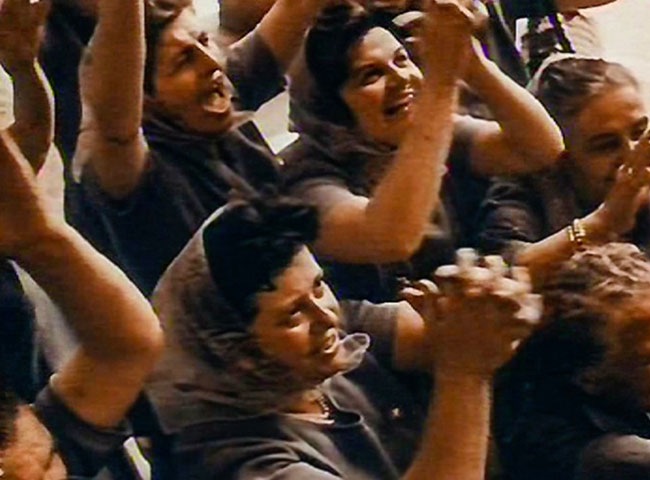Amour divin
-
Réalisé par Cecilia Mangini • Écrit par Cecilia Mangini
-
Italie • 1964 • 11 minutes • 35 mm • Couleur
- Réalisation :
Cecilia Mangini - Écriture :
Cecilia Mangini - Image :
Giuseppe De Mitri - Montage :
Renato May - Musique originale :
Egisto Macchi
- Production (structure) :
Cecilia Mangini - Ayant droit :
Cecilia Mangini
- N° ISAN :
non renseigné
Résumé
Un rite moderne né après la Seconde Guerre mondiale mais inspiré de liturgies archaïques : le culte de la vierge au Sanctuaire de l’amour divin à une quinzaine de kilomètres de Rome. Sans commentaire et structuré par le musique avant-gardiste d’Egisto Macchi, ce film fut longtemps invisible. Il a été retrouvé en 2013.
An anti-ethnological and anti-anthropological documentary about the nightly pilgrimage of the faithful to the Virgin of the Sanctuary of Divine Love: an archaic cult born in modern times, at the end of the Second World War.
"Many of Mangini’s films are dedicated to the Subaltern, whether in the countryside or the suburbs, although never to highlight their impotence in the order of society, but rather to take sides in emphatic fashion. Mangini’s cinema has been a witness to dramatic social and economic changes within Italy as a growing G7 nation. She understands the camera as a tool that can narrate from the heart of the people, at a level with her protagonists. In Tommaso, Mangini evokes tension via a dialectical montage, recounting the limits and dreams of the working class in Brindisi. A petrochemical factory is almost the benchmark of what life can offer. In Sardegna, a work commissioned for the Ministry of Labour, the ambiguity of the project can always be felt: images of new highways and industries built on the land of farmers and shepherds end with a line somebody wrote on a wall: “Basta con la prepotenza. Tutti uniti.” Sardegna fades out with children playing among sculptures of stone. La Passione del grano depicts a strange ritual, whereby peasants in Lucania (Basilicata) symbolically kill a goat with their sickles and then strip a couple of their clothes. The rites of the south are not affirmed here, but merely stated as a critical reminder of what gets lost on the way to the nation’s future."
(Gunnar Landsgesell)
Mot(s)-clé(s) thématique(s)
Sélections et distinctions
- 2021 • Doclisboa - Festival Internacional de Cinema Documental • Lisbonne (Portugal) • Rétrospective Cecilia Mangini
Comment avoir accès au film ?
-
Édition DVD
- Il n'existe pas d'édition DVD à notre connaissance
-
Accès VOD
- Il n'existe pas d'accès en VOD à notre connaissance
- Distribution
- Aide sur les moyens d'accéder à un film
